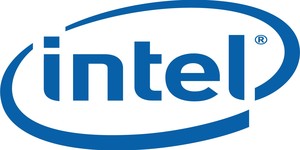
Google may be due to launch a replacement for its cancelled Google Glass hardware sooner rather than later, with sources claiming beta hardware is already in the hands of development partners.
Google's first real push into wearable computing, Project Glass was announced back in April 2012 but didn't hit the UK until June 2014. In that time, the design of the device - a pair of glasses with a head-up display located above and to the side of the wearer's centre of vision - changed little beyond a doubling of memory to 2GB. Sadly, Google also failed to hit its original price point: the announcement suggested a Google Glass unit would launch at the same price as a mid-range smartphone, but a £1,000 price tag in the UK saw poor take-up and its removal from sale earlier this year.
At the time, Google denied it was planning to close its Glass division stating instead that the team was to 'focus on what's coming next' and was 'moving even more from concept to reality.' Now, the first details about the team's work on the next-generation device - now a self-contained sub-unit of Google proper, rather than a part of Google's moon-shot Google[x] arm - have emerged from sources close to matters.
According to a report from last week by 9to5Google quoting several anonymous sources, partners in Google's Glass at Work programme have been receiving next-generation prototypes described as 'still in the earlier stages of development' since as far back as October last year. While details of the device's specifications have not emerged, the site has also highlighted changes to the team working on it that could be indicate progress on an even newer iteration of the hardware. If so, that would put the version shared with Glass at Work partners at alpha status and push back the commercial launch of any future device.
Google, naturally, is remaining silent on its plans, but with its Android Wear platform for smartwatches proving increasingly popular the company would certainly seem to be giving Google Glass another crack of the whip - and we can only hope that it will arrive at a slightly more sensible price point the second time around.
Google's first real push into wearable computing, Project Glass was announced back in April 2012 but didn't hit the UK until June 2014. In that time, the design of the device - a pair of glasses with a head-up display located above and to the side of the wearer's centre of vision - changed little beyond a doubling of memory to 2GB. Sadly, Google also failed to hit its original price point: the announcement suggested a Google Glass unit would launch at the same price as a mid-range smartphone, but a £1,000 price tag in the UK saw poor take-up and its removal from sale earlier this year.
At the time, Google denied it was planning to close its Glass division stating instead that the team was to 'focus on what's coming next' and was 'moving even more from concept to reality.' Now, the first details about the team's work on the next-generation device - now a self-contained sub-unit of Google proper, rather than a part of Google's moon-shot Google[x] arm - have emerged from sources close to matters.
According to a report from last week by 9to5Google quoting several anonymous sources, partners in Google's Glass at Work programme have been receiving next-generation prototypes described as 'still in the earlier stages of development' since as far back as October last year. While details of the device's specifications have not emerged, the site has also highlighted changes to the team working on it that could be indicate progress on an even newer iteration of the hardware. If so, that would put the version shared with Glass at Work partners at alpha status and push back the commercial launch of any future device.
Google, naturally, is remaining silent on its plans, but with its Android Wear platform for smartwatches proving increasingly popular the company would certainly seem to be giving Google Glass another crack of the whip - and we can only hope that it will arrive at a slightly more sensible price point the second time around.

MSI MPG Velox 100R Chassis Review
October 14 2021 | 15:04








Want to comment? Please log in.